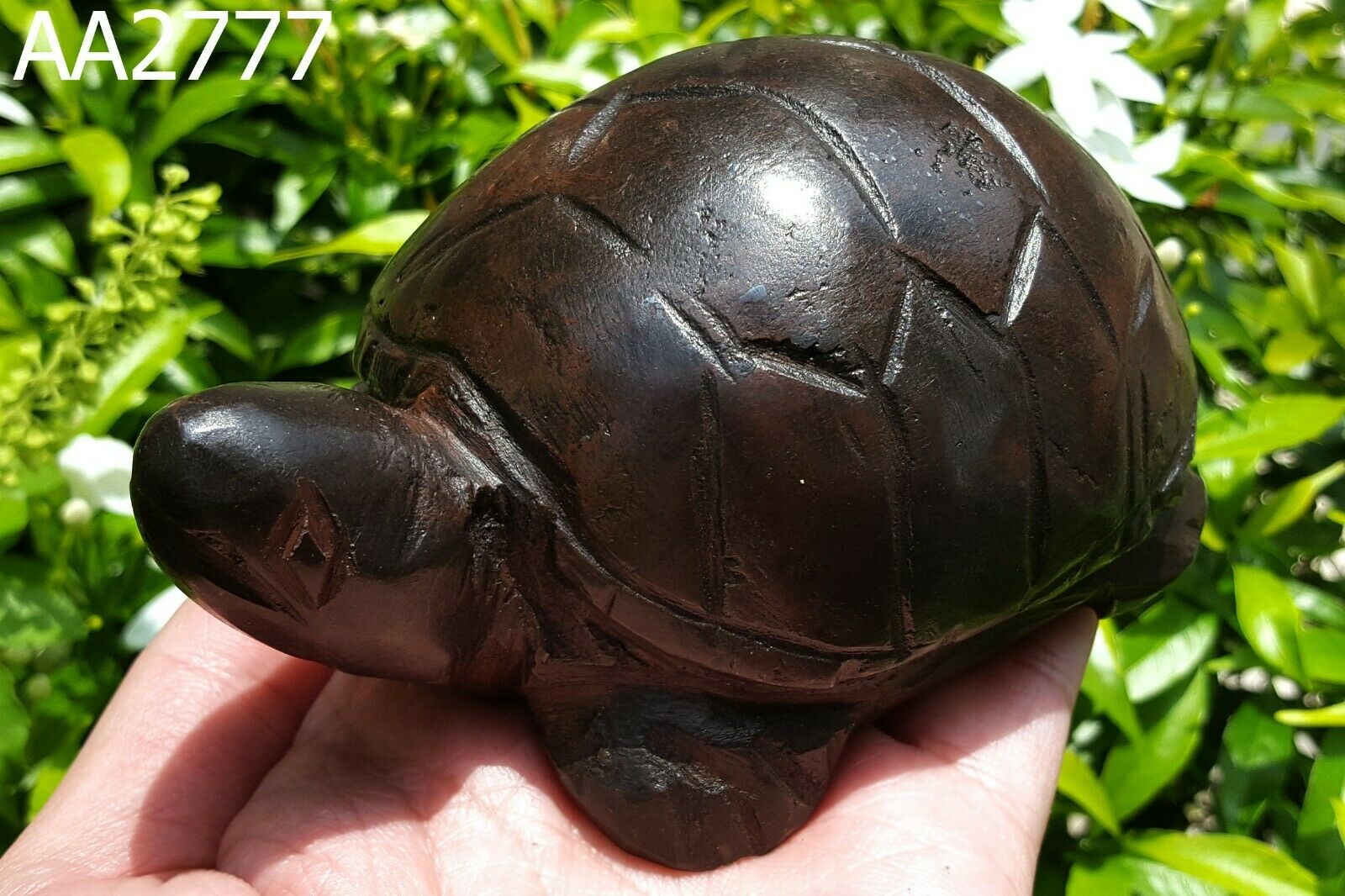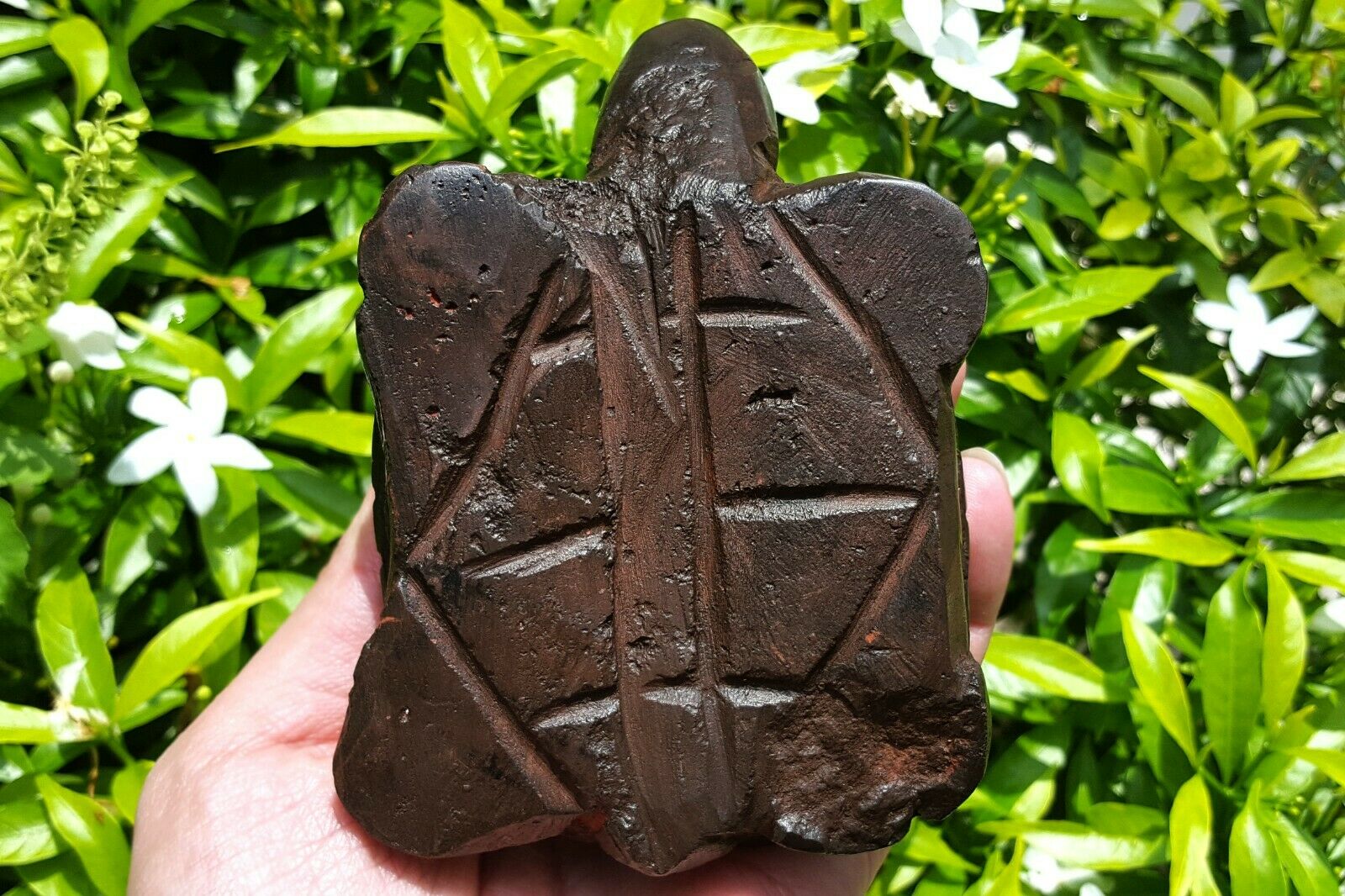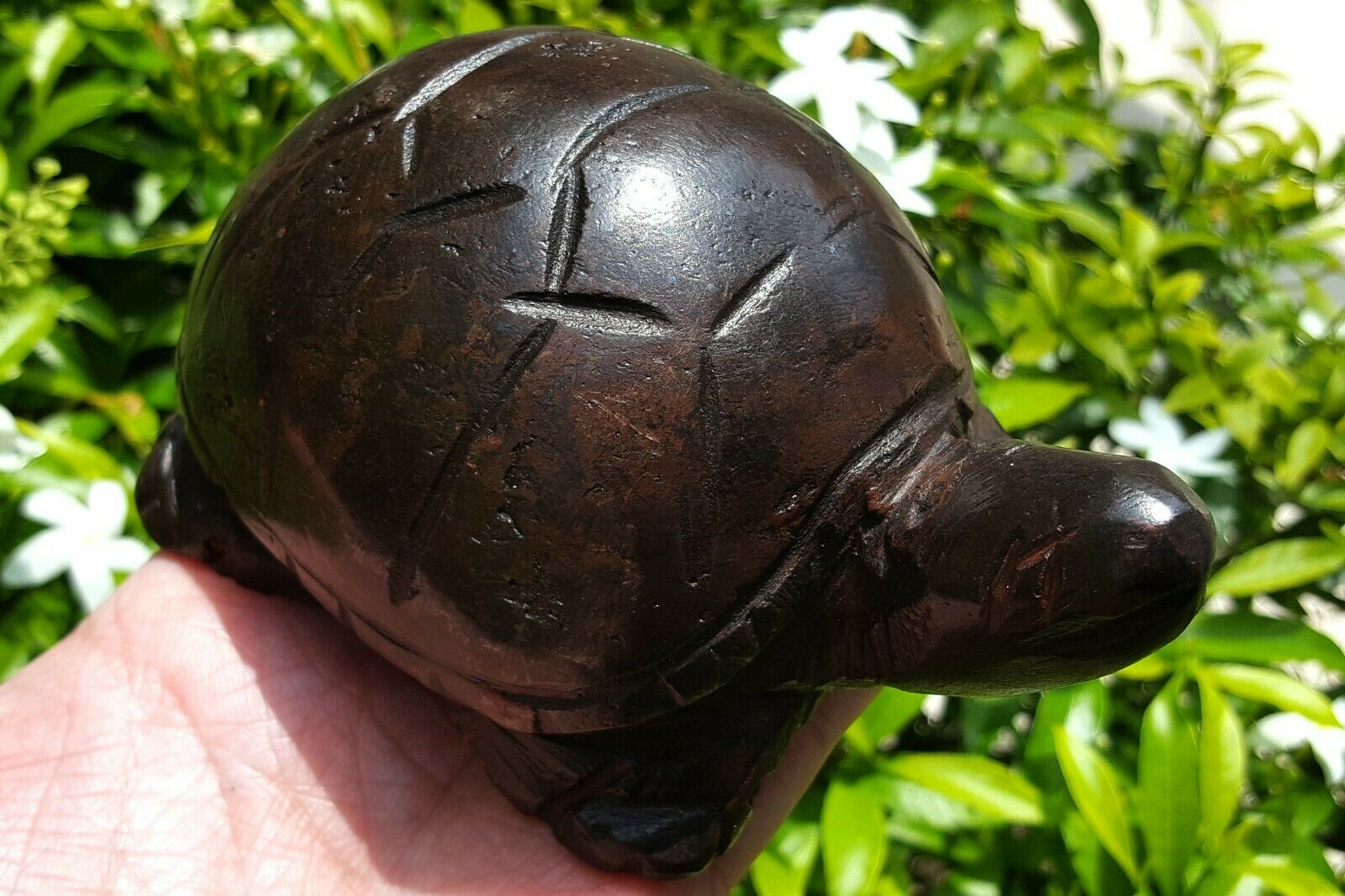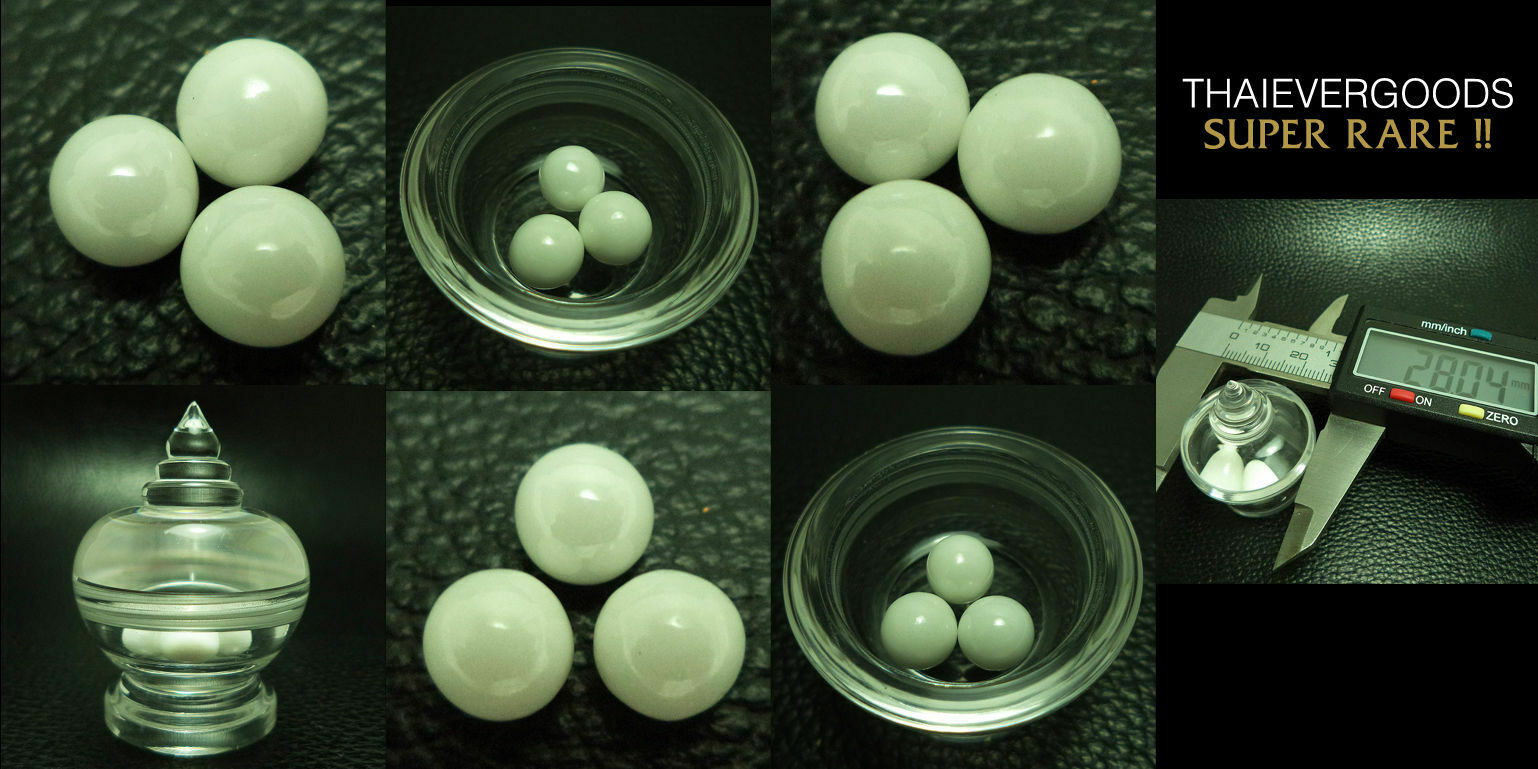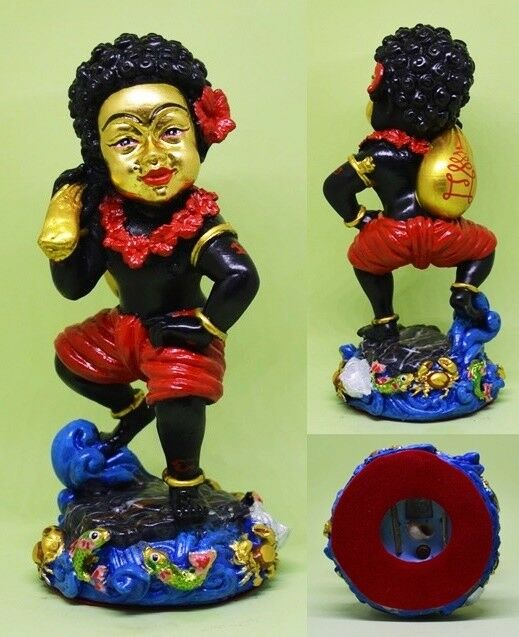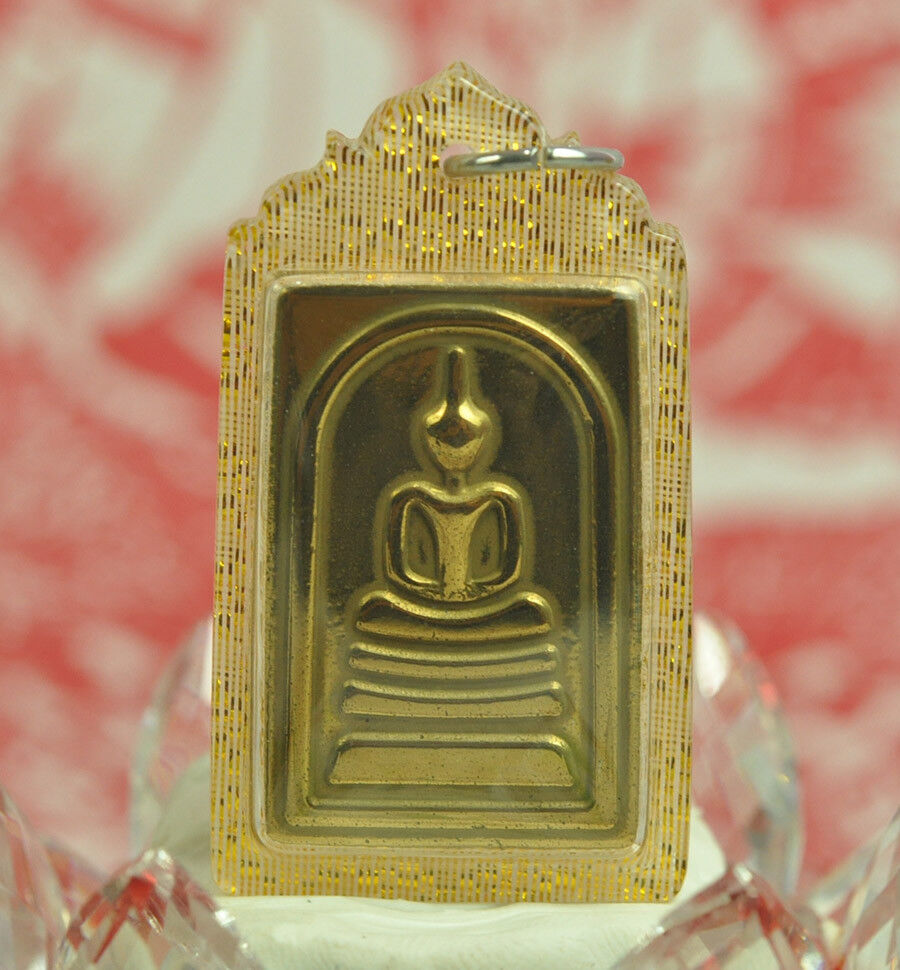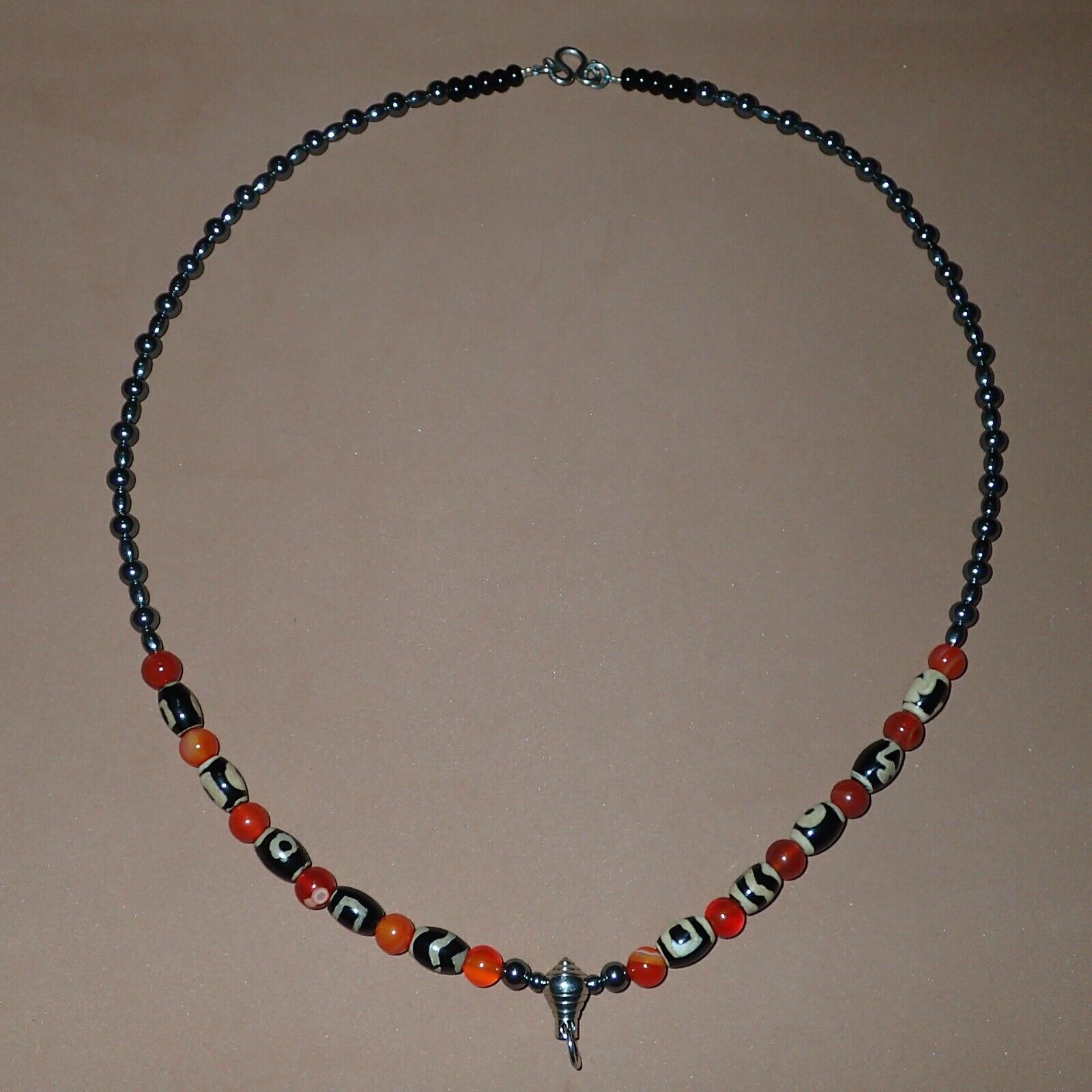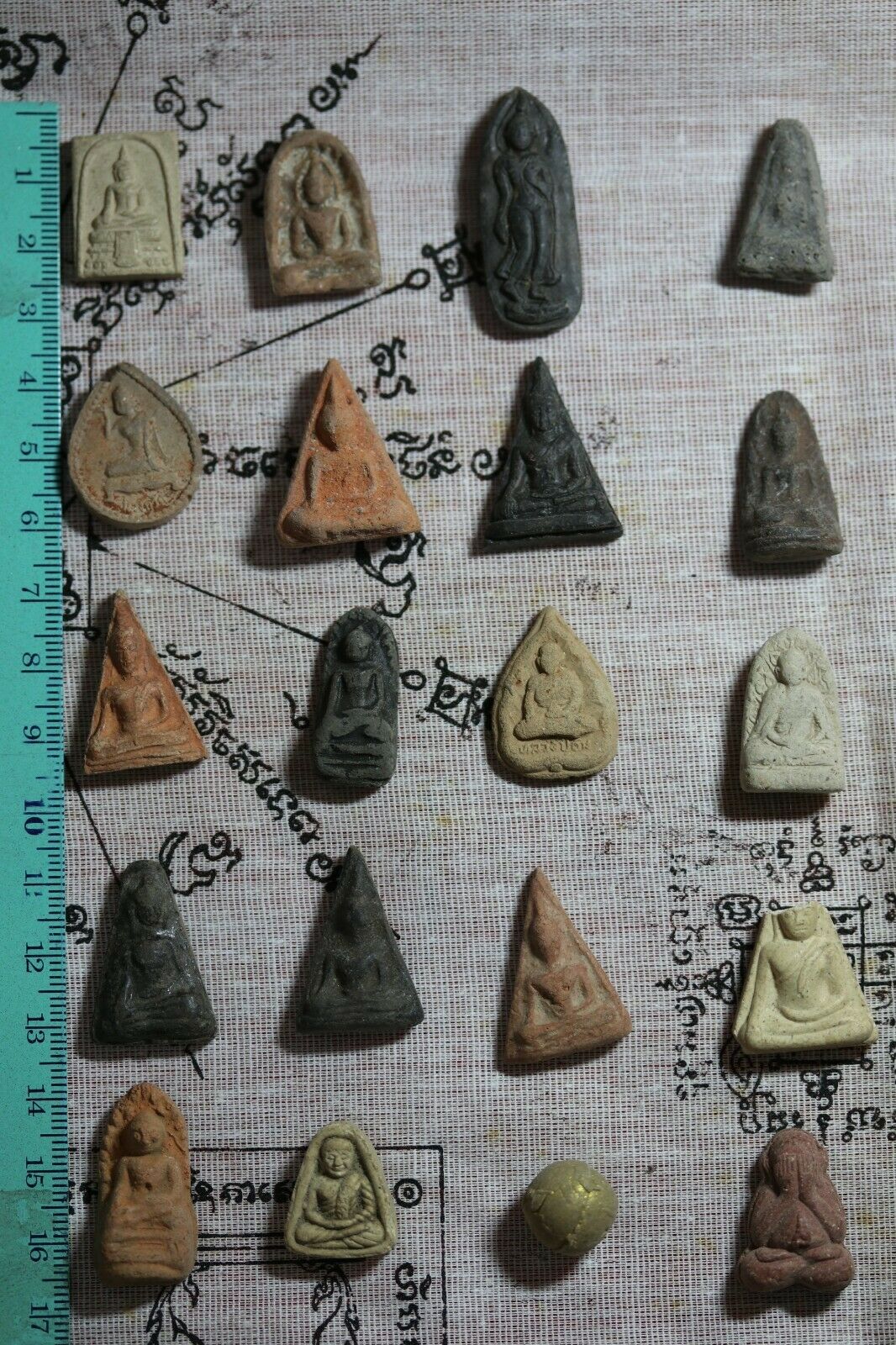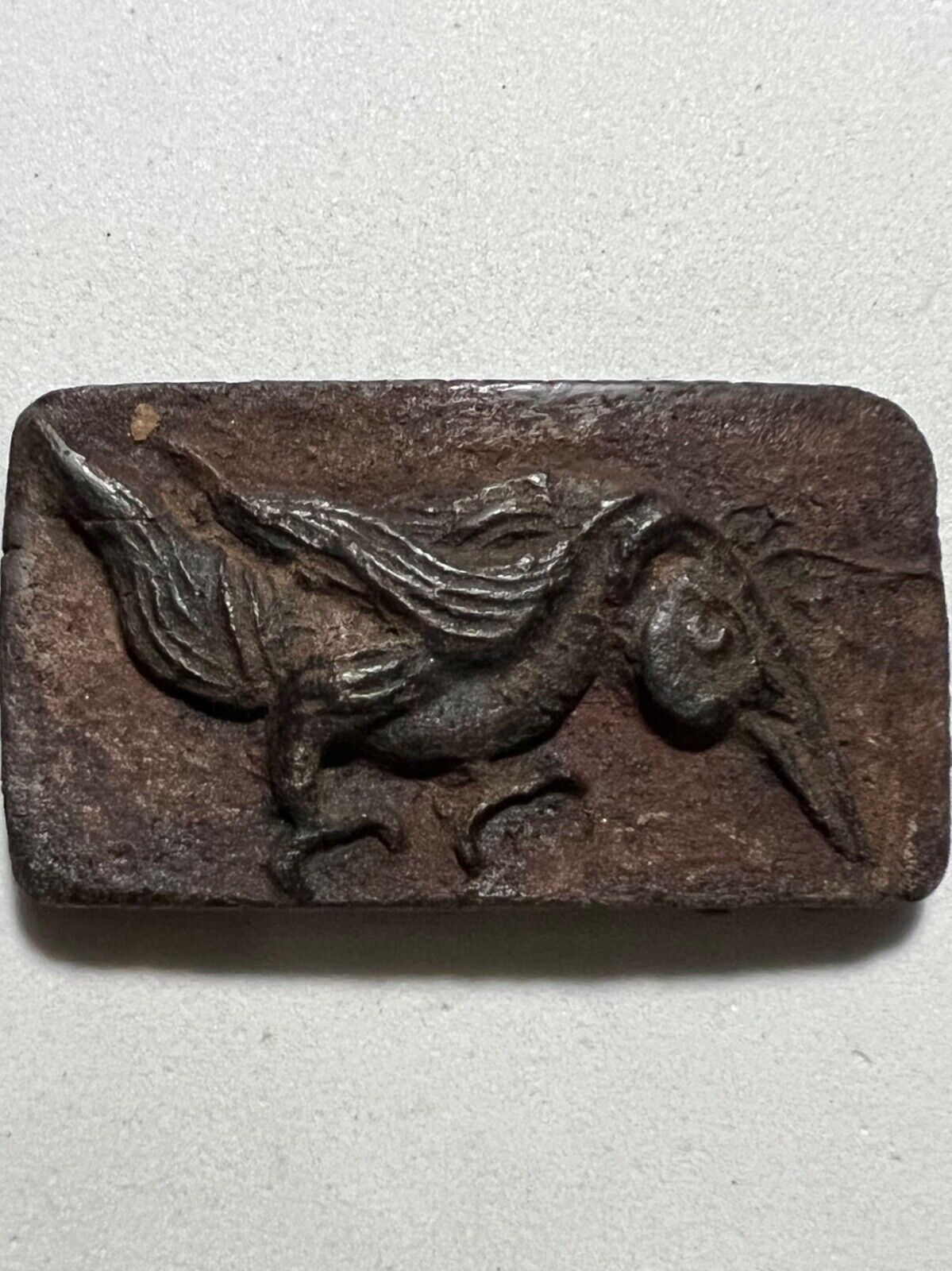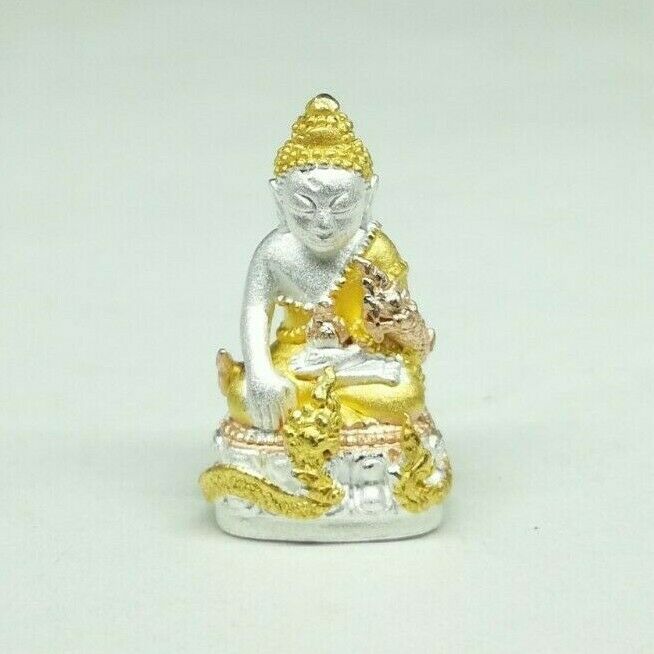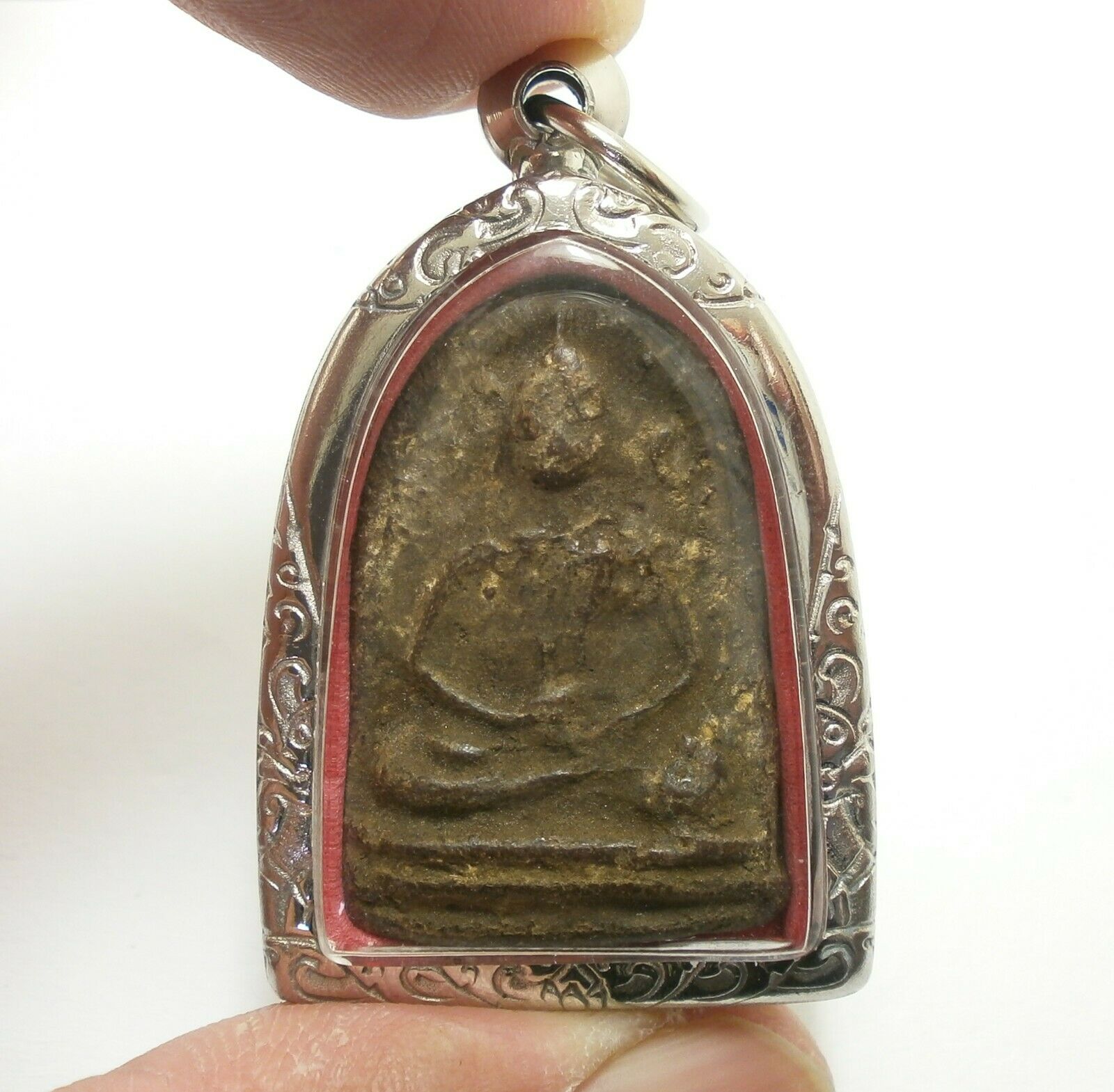-40%
Natural Leklai Umklum Cave Turtle Statue Fortune Thai Buddha Amulet #aa2777a
$ 40.47
- Description
- Size Guide
Description
DHL EXPRESS (3-5 days to your door) Cost starting at .THANK YOU AND STAY SAFE TO EVERYONE OF OUR LOYAL CUSTOMERS!!!!
Thai Amulets
Thai amulets gained tremendous popularity in the 1800’s during the reign of King Rama V, but go back centuries. Tribal people probably wore or kept magical talismans, prior to the introduction of Buddhism as there are archaic images found in Thailand that are not Buddhist.
When the Thai Kingdom evolved and Buddhism was introduced, the former practices were not erased, as is often the goal of major religions that seek to dominate past practices. Buddhism is tolerant, and most amulets with pre-Buddhist symbols have been made by monks. A talisman or amulet is believed to counteract bad events, illness, black magic, evil spirits or misfortune such as accidents or assault.
Tiny molded Buddha images were often buried in spires with the ashes of famous monks and Royal persons and the older ones have been excavated and used as powerful amulets.
Still other votive tablets have been manufactured in temples and given to favored parishioners (usually those who make donations) and are blessed or consecrated--and in this way money is raised for new temple buildings. These days almost every Thai wears or keeps multiple amulets, sometimes having a large collection kept at home aside from those worn on necklaces and waist cords under the shirt and amulet collecting is a huge national Thai pastime.
Thai Buddha amulet (Thai: พระเครื่อง; RTGS: phrakhrueang), often referred to academically as "votive tablet", is a kind of Thai Buddhist blessed item. It is used to raise funds to help the temple producing the amulets. Worshippers can obtain an amulet or Thai Buddhist monk blessing by simply donating money or offering oil to the temple. After the donation, the monk will give them an amulet as a gift.
The amulets no longer simply are considered a "gift", but a tool to help enhance luck in different aspects of life. People use amulets to improve their marriage, wealth, health, love and relationships.
It is a Thai tradition to place amulets under a stupa or other temple structure when it is built. When the structure collapses, many amulets may be found. Some can be over a century old.
Almost every Thai Buddhist has at least one Thai amulet. It is common to see young or elderly people wear one or many amulets around the neck in order to get closer to the Buddha.Amulets are made using the Buddha image, an image of a famous monk, or even an image of the monks who made the amulets.
Amulets vary in size, shape, and materials such as plaster, bone, wood, or metal. They may include ash from incense or old temple structures, or hair from a famous monk to add protective power to the amulets.
After the amulets are made, the maker will then ask the monks who live in temples or monks from other temples join together and practice will, chant, pray and bless the amulets. This process may take from a week to more than three years.
When a new amulet is freshly made, its plaster appearance may not be attractive or gorgeous. By adding a protective casing the appearance of the amulet is enhanced and at the same time the amulet inside is protected.
The price of an amulet not only depends on its appearance, but also on its scarcity, its maker, its age and the magic classes as well.
Famous markets for amulets include the Tha Phrachan Market next to Thammasat University. However, many amulets at the Tha Prachan market are considered to be fake, meaning replicas that have not been blessed by a monk. Genuine amulets are rare at the Tha Prachan Market.
Many collectors and devotees have a trusted dealer of authentic amulets, for the study and authentication of real amulets is as complex a matter as is to be found in the antique trade, or in similar niches such as stamp collecting.
Forgeries are rife, and it takes decades of study and experience to develop the skills needed to recognise authentic amulets. There are literally millions of editions from thousands of temples, spanning centuries, and it is not possible for one person to harbor the knowledge to be able to authenticate every single edition. Hence, each expert has his own chosen line of amulets, of a particular type, temple, or artisan, which he chooses as his personal field of expertise.
Product Description
Natural Leklai Umklum Cave Turtle Statue Fortune Thai Buddha Amulet #aa2777a
Natural Leklai Umklum Cave Turtle Statue Fortune Thai Buddha Amulet #aa2777a
Size 3 inch
See Pic
Material :
Thai Amulets
